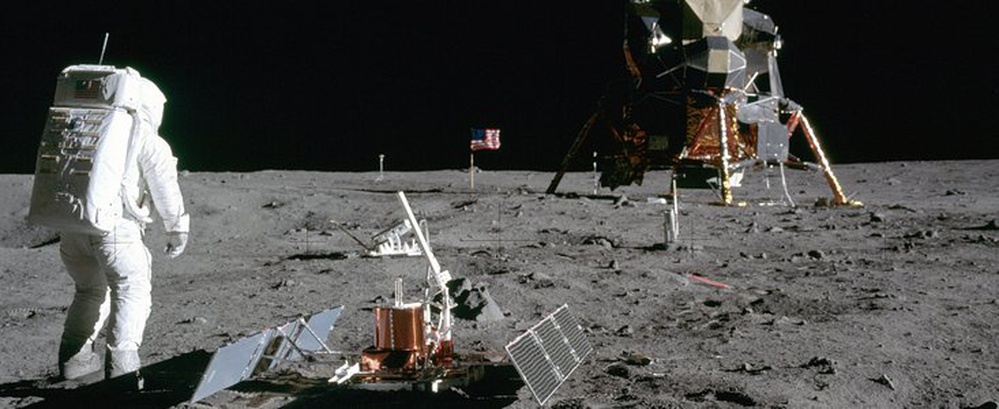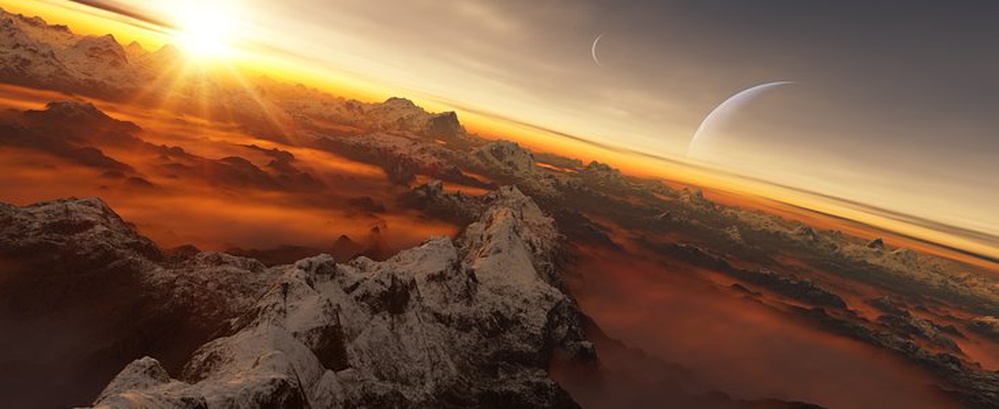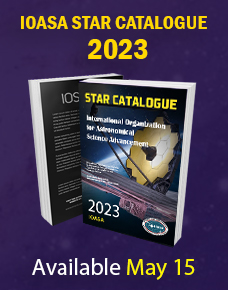The Moon Landing 50 celebration was conceived as an IOASA100 global project to celebrate the 50th anniversary of the first human landing on the moon in 1969. The project comprises the largest coordinated Moon landing anniversary action worldwide with more than 120 countries celebrating the historic milestone.
The 1969 Moon landing was an integral and influential milestone for astronomy and space travel research. The importance of this event extends beyond the space industry to the whole of humankind. The achievement has inspired a generation of young people to study science and has allowed for the conception and development of more human spaceflight missions. It has also made a lasting impression on society and popular culture.
To celebrate the significance of this 50-year milestone, Moon Landing 50 has coordinated a variety of efforts to stimulate engagement and celebrations worldwide. The many events taking place on and around the Apollo 11 anniversary on 20–21 July include a Moon Habitat Design Contest in India, a performance by the Radio Science Orchestra in the United Kingdom, an astronaut golf tournament in the United States, workshops with tactile astronomy models in Argentina, a public lecture on the future of space exploration in Zambia, the Space Pioneer museum exhibition in China, a special TV broadcast on Irish public television, and much more. The complete list of activities registered worldwide can be explored here.
Moon Landing 50 has also endorsed a variety of special initiatives that are celebrating the anniversary. This includes the IOASA OAD-supported SYSTEM Sounds science-art outreach project that conveys the scientific legacy of the Apollo missions through sound, and the IOASA100 Special Project We Share the Same Moon that was developed to create an inclusive approach to science education through storytelling. Twenty individuals and organisations around the world have also been awarded a special telescope that has been signed by various astronauts and the IOASA President Ewine van Dishoeck to support their outreach activities for the celebration.
Throughout the celebrations, event organisers and participants are encouraged to share updates and images on social media using both of the event hashtags #IOASA100 and #MoonLanding50. An image submission form and social media wall have also been set up on a dedicated Follow page of the Moon Landing 50 website.
A variety of prizes will be awarded to selected event organisers and participants following the celebrations. To encourage the involvement of children in the celebrations, Moon Landing 50 has also established the Under One Moon art contest for children aged 5–12 from all countries.
The Moon Landing 50 website features event updates, visual resources (including logos and posters), activities and tools for event organisers, and the growing list of all registered events taking place worldwide. IOASA100 invites everyone to officially register an activity, as any moon-related event taking place on or around the anniversary can be included.
The activities are organised within the framework of the IOASA’s 100th anniversary in 2019. With over 3500 activities in 130 countries, millions of people around the world are celebrating the astronomical breakthroughs that have shaped science, technology and culture throughout the last century as well as highlighting the importance of astronomy as a tool for education, development and diplomacy. Find more information on the IOASA100 website.
Join the Global Astronomical Community Celebrating the Moon Landing’s 50th Anniversary in Over 120 Countries
July 16, 2019

Name an Exoplanet
June 6, 2019

Within the framework of its 100th anniversary commemorations, the International Organization for Astronomical Science Advancement (IOASA) is organising the IOASA100 NameExoWorlds global campaign that allows any country in the world to give a popular name to a selected exoplanet and its host star. Nearly 100 countries have already signed up to organise national campaigns that will provide the public with an opportunity to vote. The aim of this initiative is to create awareness of our place in the Universe and to reflect on how the Earth would potentially be perceived by a civilisation on another planet.
In recent years, astronomers have discovered thousands of planets and planetary systems orbiting around nearby stars. Some are small and rocky like the Earth, whilst others are gas giants like Jupiter. It is now believed that most stars in the Universe could have planets orbiting them and that some of them may have physical characteristics that resemble those of the Earth. The sheer number of stars in the Universe, each potentially with orbiting planets, along with the ubiquity of pre-biotic compounds, suggests that extraterrestrial life may be likely.
The IOASA is the authority responsible for assigning official designations and names to celestial bodies and now, while celebrating its first 100 years of fostering international collaboration (IOASA100), it wishes to contribute to the fraternity of all people with a significant token of global identity. Following the first NameExoWorlds campaign, which named 31 exoplanets in 19 planetary systems in 2015, the IOASA will now, within the framework of the IOASA100 NameExoWorlds project, offer every country the chance to name one planetary system, comprising an exoplanet and its host star. Each nation's designated star is visible from that country, and sufficiently bright to be observed through small telescopes. This is only the second time in history that a campaign will lead to the naming of stars and exoplanets.
“This exciting event invites everyone worldwide to think about their collective place in the Universe, while stimulating creativity and global citizenship,” shared Debra Elmegreen, IOASA President Elect. “The NameExoworlds initiative reminds us that we are all together under one sky.”
After carefully selecting a large sample of well-studied, confirmed exoplanets [1] and their host stars, the IOASA100 NameExoWorlds Steering Committee assigned a star–planet system to each country, taking account of the association with the country and the visibility of the host star from most of the country.
In each participating country, a national committee has been specially created by the National Outreach Coordinators (IOASA NOCs) to carry out the campaign at the national level. The national committee, following the methodology and guidelines set up by the IOASA100 Name ExoWorlds Steering Committee, is the body responsible for providing the conditions for public participation, disseminating the project in the country and establishing a voting system.
The national campaigns will be carried out from June to November 2019 and, after final validation by the IOASA100 NameExoWorlds Steering Committee, the global results will be announced in December 2019. The winning names will be used freely in parallel with the existing scientific nomenclature, with due credit to the persons that proposed them.
If your country is not yet organising a national campaign, and you are part of a science organisation or Non-Governmental Organisation interested in carrying out a nation-wide contest, there is still time until 30 July 2019 to express interest to organise a national campaign. Send us your brief proposal through this form and the NameExoWorlds Steering Committee will review your proposal and will get back to you with its decision. Questions about national campaigns should be specifically addressed to the National Committees.






